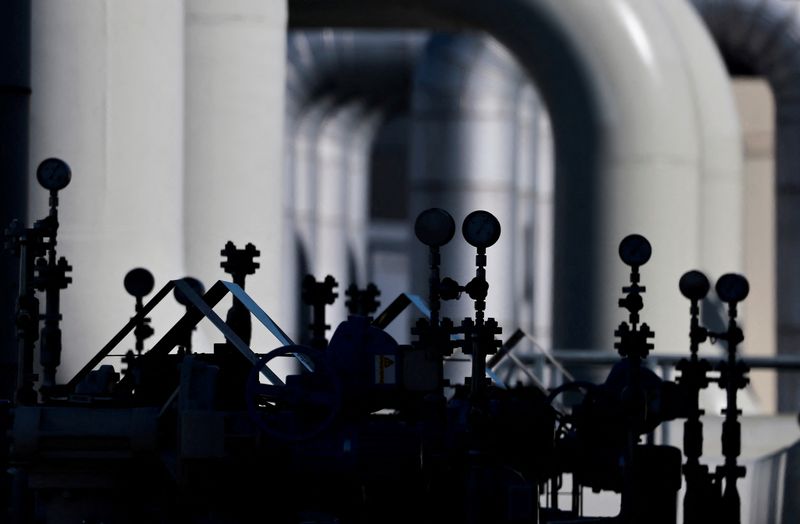FRANKFURT – Germany on Thursday moved to stage two of its three-tier emergency gas plan after Russia reduced deliveries via the Nord Stream 1 pipeline, though for the time being there will be no government rationing of the fuel.
Here is a closer look at the three stages, which are all set by Germany’s Economy Ministry:
1. EARLY WARNING PHASE
– This stage is triggered when there are “concrete, serious and reliable indications that an event may occur which is likely to lead to a significant deterioration of the gas supply situation and probably to the alarm or emergency level.”
– Gas companies continue to ensure supplies, there are no supply disruptions yet.
– Gas transmission system operators (TSOs), or network operators, update Germany’s Economy Ministry at least once a day on the supply situation.
– Electricity TSOs coordinate to ensure the stability of their grids.
– Gas suppliers advise the government and are part of the crisis team.
– The government immediately informs the European Commission about potential further measures, which can include revoking the early emergency status if the conditions are no longer met.
2. ALARM PHASE
– This stage is triggered when there “is a disruption in the gas supply or an exceptionally high demand for gas which leads to a significant deterioration of the gas supply situation, but the market is still able to cope with this disruption or demand without the need to take non-market based measures.”
– It kicks in when there is a high risk of long-term supply shortages of gas, and theoretically enables utilities to pass on soaring gas costs to industry and households
– Germany’s Economy Ministry on Thursday said, however, that this clause had not been triggered
– There are no changes compared with the first phase, but all market players, including TSOs and gas suppliers, are under more pressure to balance out disruptions via efficiency and short-term measures such as procuring gas from alternative sources.
3. EMERGENCY PHASE
– This stage is triggered when there “is an exceptionally high demand for gas, a significant disruption in gas supplies or another significant supply situation and all relevant market-based measures have been implemented, but gas supply is insufficient to meet the remaining gas demand so that additional non-market based measures need to be taken, in particular to ensure the supply of gas to protected customers.”
– State intervention kicks in because market fundamentals no longer apply, effectively meaning that remaining gas supplies are rationed.
– This is done by the German network regulator, the Bundesnetzagentur, which is tasked with securing the “vital demand for gas with special consideration of protected customers and minimising consequential damage.”
– In broad brush terms, supply to industry is curtailed first, while households and critical institutions such as hospitals continue to receive available gas.
(Reporting by Christoph Steitz; editing by Edmund Blair and Jason Neely)
